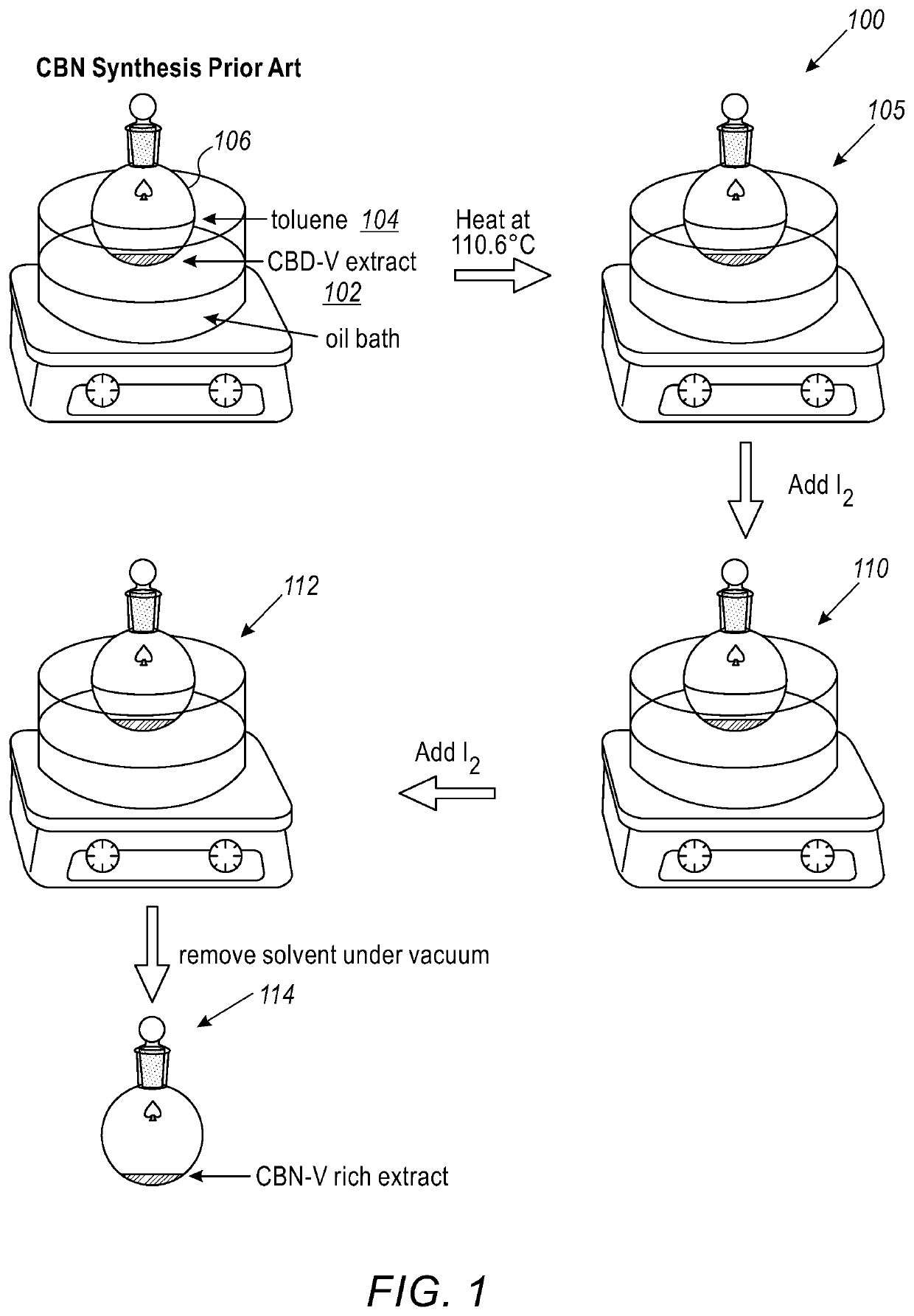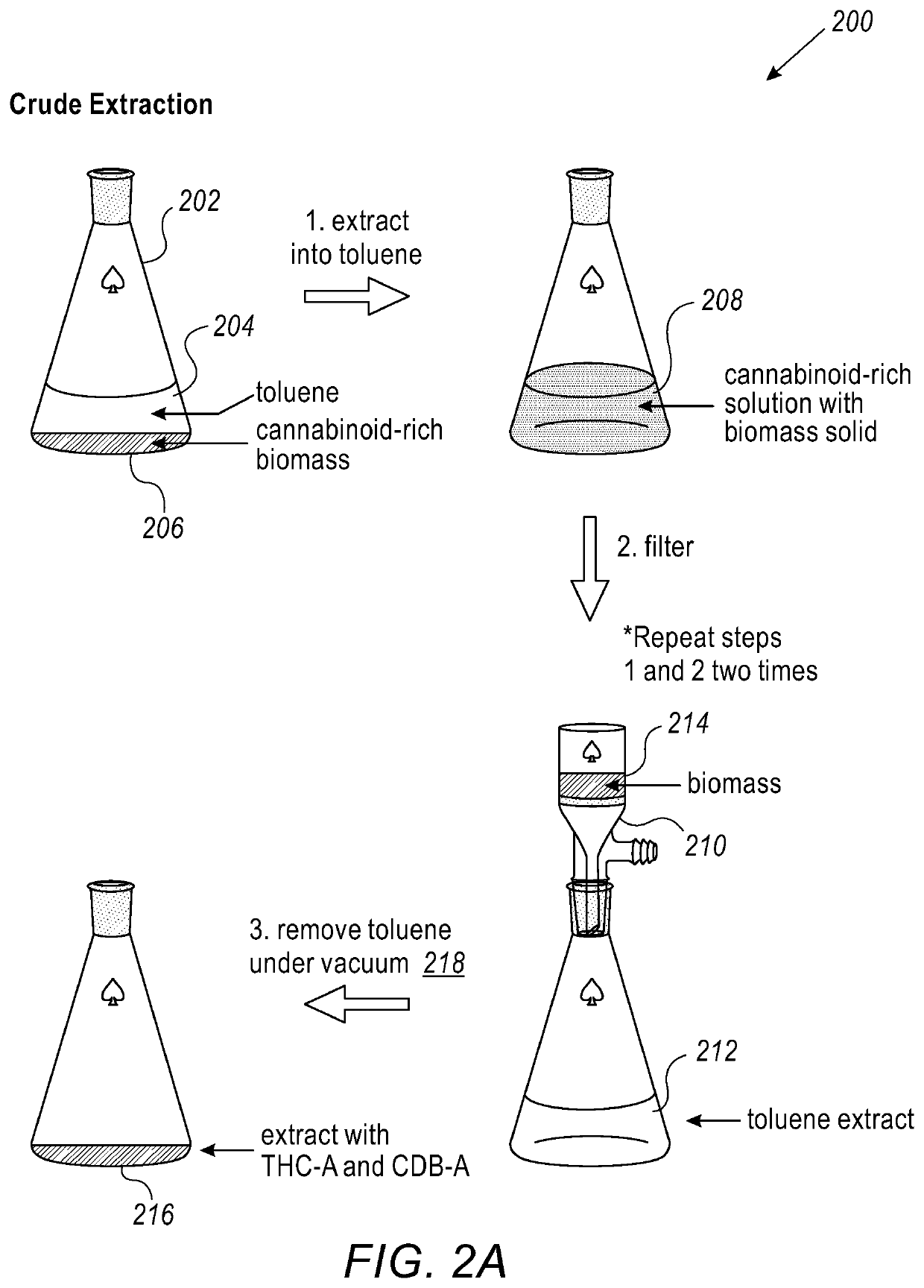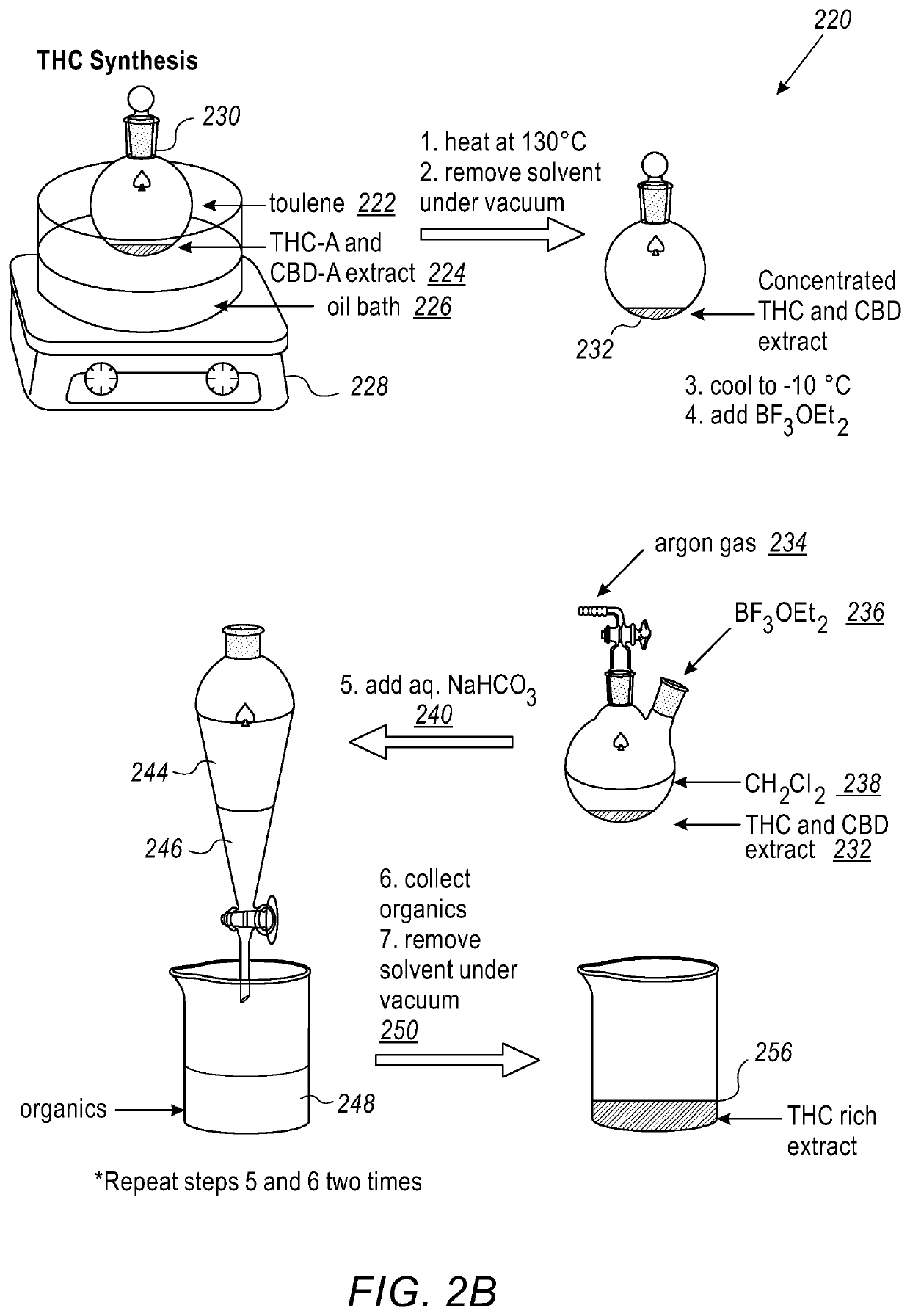Method for synthesis of cannabis products
a technology of synthesis method and cannabis product, which is applied in the field of chemical synthesis of phytocannabinoids, can solve the problems of slow and inefficient degradation of 9thc to cbn, complicated application of 9thc, and complicating the achievement of therapeutic doses
- Summary
- Abstract
- Description
- Claims
- Application Information
AI Technical Summary
Benefits of technology
Problems solved by technology
Method used
Image
Examples
example # i
[0119]Crude extraction includes the step of weighing biomass and crushing it with mortar and pestle. Cannabinoid-rich biomass (206) was placed into the Erlenmeyer flask (202) and toluene (204) was added to the biomass (100 mL) and the mixture was vigorously stirred for 20 minutes (208). Using Buchner funnel (210), the biomass mixture (214) was then filtered to give a golden colored toluene solution (212). This step was repeated a total of two times, the golden color of the solution drastically decreased with the subsequent washings. The combined Toluene solutions (300 mL) was used to remove all volatiles in vacuo (218) to yield a thick brown oil enriched in CBDa and THCa (216). In one specific case, using quantitative NMR, the extract was found to be 45.2% CBD-A and 1.2% THC-A.
[0120]FIG. 2B is a simplified pictorial illustration of a method for synthesizing tetrahydrocannabinol (THC) products, in accordance with an embodiment of the present invention;
example # ii
[0121]THC synthesis includes adding toluene (step 222) to CBD-A- / CBD- and THC-A / THC-rich extracts (224) such as the one described in FIG. 2A into a Teflon sealed round-bottomed flask (230) fitted with a water cooled reflux condenser and placing it an oil bath (226) on a stirring hot-plate (228). The oil bath is heated to a reflux at 130° C. for at least 2 h and the reaction then is allowed to cool to room temperature. The reflux condenser is then replaced with a Teflon sealed joint adapter and then the entire apparatus with CBD / THC-rich extract (232) is placed under vacuum, removing toluene in vacuo. Either dichloromethane (238) or chloroform (20 mL) is transferred into the flask under vacuum, after which the round bottom flask and solution are placed under an inert atmosphere. Dichloromethane used in the reaction is dried prior use with CaH2, and stored under argon to keep dry. The solution is then cooled to an optimal temperature between 0° C. and −10° C. using ice or an ice / aceto...
example # iii
[0125]Into a 100 mL round bottom flask (230) with a Teflon stir bar, iodine (282.3 mg, 1.1 mmol) was weighed out. Extract from Cannabis Sativa (564.5 mg) (224) was dissolved in toluene (20 mL) (222) and added to the flask creating a dark red / brown solution, the reaction flask was then fitted with a reflux condenser. The flask was submerged into an oil bath (226) and heated to 130° C. (228) which was sufficient to cause the toluene to reflux. The reaction was allowed to stir under reflux for 3 hours. The reaction flask was left to cool to room temperature and washed with a saturated solution of sodium thiosulfate (3×30 mL). The combined aqueous layer was then washed with toluene (20 mL) and the organic layers combined and dried with magnesium sulfate. Volatile compounds were removed in vacuo to produce a crude brown oil. The oil was purified using column chromatography. Silica gel was used as the stationary phase (30 mL) and a 9:1 solution of petroleum ether:diethyl ether as the elue...
PUM
 Login to View More
Login to View More Abstract
Description
Claims
Application Information
 Login to View More
Login to View More - R&D
- Intellectual Property
- Life Sciences
- Materials
- Tech Scout
- Unparalleled Data Quality
- Higher Quality Content
- 60% Fewer Hallucinations
Browse by: Latest US Patents, China's latest patents, Technical Efficacy Thesaurus, Application Domain, Technology Topic, Popular Technical Reports.
© 2025 PatSnap. All rights reserved.Legal|Privacy policy|Modern Slavery Act Transparency Statement|Sitemap|About US| Contact US: help@patsnap.com



